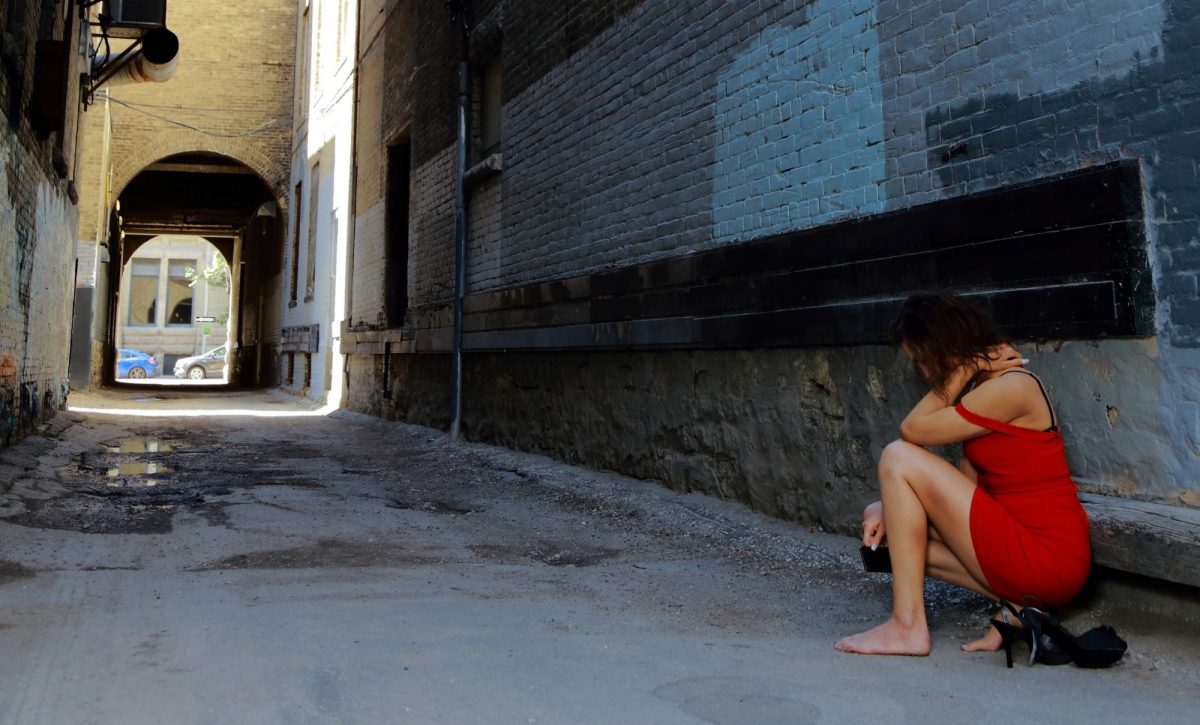
We all have a part in ending human trafficking
Having a “World Day Against Trafficking in Persons” highlights that the scourge of human exploitation and organized crime thrives worldwide. It flourishes because there is a market for forced labour and sexually exploited people.
Realizing early in my policing career that this is one of the worst forms of victimization, I devoted a good chunk of my time to trying and leading others to intervene. Now in my 32nd year of policing, I must report that it has persisted and morphed, going more online, but is still an insidious threat to some of our most precious and vulnerable citizens. Because of this, I devoted my doctoral research to raising awareness of this serious issue.
My professors at the Mauro Institute for Peace and Justice at the University of Manitoba encouraged my fellow students and me to select topics for research that we felt passionate about. Reflecting, I realized some of my most challenging and rewarding years were spent working with colleagues in the Police Service, Family Services, and the whole spectrum of agencies combating human trafficking and exploitation. It was emotionally taxing, but the inroads and successes were rewarding.
I’ve always said that if it saves one life, it is all worth it. So, when it came time to select my dissertation topic, I decided to dive back in. Tens of millions of dollars are spent on anti-trafficking each year in Manitoba alone, yet women and children (and men) are still oppressed, targeted, and exploited.
My research confirmed that sex trafficking is thriving. Organized crime and miserable social conditions continue to affect Indigenous women and girls more than any other group. My dissertation, Modern-day slavery and the sex industry: raising the voices of survivors and collaborators while confronting sex trafficking and exploitation in Manitoba, Canada (MSpace, University of Manitoba, 2017), highlights my research. This involved interviewing 61 people with a combined 1,000 years of experience combatting and participating in the sex industry. These individuals described many tangible solutions to a broken system. They also showed me the best of humanity, passionately striving to protect the wellbeing and dignity of survivors. My book that flowed from my dissertation, Sex Industry Slavery: Protecting Canada’s Youth (University of Toronto Press, 2020), is my attempt to raise their voices further and keep our attention on issues that we need to all feel responsible for correcting.
Reconciliation is top of mind for many Canadians in 2021, as more proof of Canada’s dark colonial history is revealed with the unmarked graves of Indigenous youth across the country. Rectifying these past wrongs includes improving social conditions that are at the root of sex trafficking and exploitation. In our co-edited book, Our Shared Future: Windows into Canada’s Reconciliation Journey (Lexington, 2020), Dr. Laura Reimer and I pulled together the voices of leaders across the country, many of whom are Indigenous, highlighting the great work that many have done, and continue to do, around reconciliation.
Education leading to employment opportunities, improved social conditions, and awareness for all Canadians are the key to addressing trafficking and a host of other social problems. We, as Canadians, are fortunate to be one of the most diverse countries in the world. The dark parts of our history should not overshadow the great things we have accomplished. We have a long way to go as a country, but have come a long way as well.
We all are responsible, and each of us plays a part in our unique ways. Doing nothing is contributing to the problem. At the very least, we can all become aware, acknowledge past wrongs, learn from them, and encourage those around us to do the same.
About Bob Chrismas
Bob Chrismas is a graduate of the Arthur V. Mauro Institute for Peace and Justice in St. Pauls College, University of Manitoba. He serves on the board of the Institute. Chrismas is a two-time UM graduate, having completed his Joint Master of Public Administration in 2009, and his PhD in 2016. His dissertation focused on interrupting sex trafficking, and it won the 2017 University of Manitoba Distinguished Dissertation Award. Chrismas is a career police officer and publishes widely on justice related issues. Visit him at BChrismas.com
Bob Chrismas was interviewed by Tracy Bowman for the UM Alumni Association’s video series Virtual Learning for Life in February 2021. View his presentation here.







